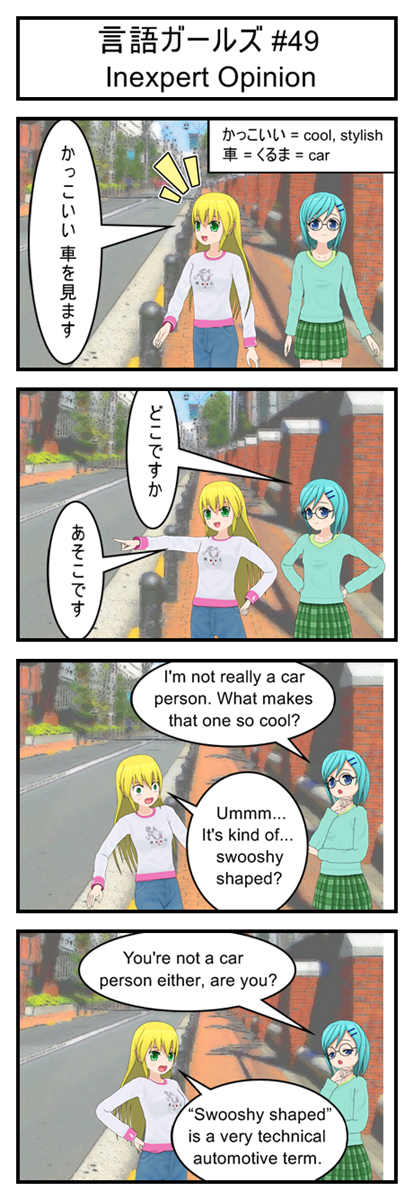
Remember, the を marks the object of the sentence. In this case it marks exactly what is being seen.
We also have some good examples of implied sentence subjects here. In fact, none of the three Japanese sentences in this strip had an explicit subject.
In the first sentence it’s obviously the speaker who has just seen something because you don’t generally start conversations by telling other people what they see. (You might ask them if they saw something, but you wouldn’t just tell them.) There was no need to start with something like “Watashi wa”.
Then from there it’s obvious that the other two sentences are focused on the car that got brought up in the first sentence, so there’s no reason to explicitly mention it again and again.
Vocabulary
かっこいい = cool, stylish
車 = くるま = car
Transcript
言語ガールズ #49
Inexpert Opinion
Yellow: かっこいい 車を見ます
Blue: どこですか
Yellow: あそこです
Blue: I’m not really a car person. What makes that one so cool?
Yellow: Umm…. It’s kind of… swooshy shaped?
Blue: You’re not a car person either, are you?
Yellow: “Swooshy shaped” is a very technical automotive term.